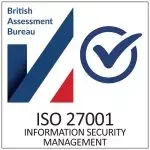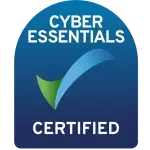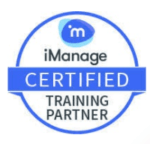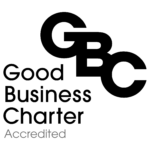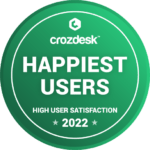Created by Learning & Development professionals and trainers, our cost-effective compliance targeted off-the-shelf eLearning content and course library (Intellek Learn) hosts a wealth of ready-made courses and microlearning modules to build skills-based learning, close knowledge gaps, boost performance and increase productivity.
Besides our highly skilled online course developers and experts in instructional design from a variety of disciplines, we partner with top-quality off-the-shelf eLearning course providers and eLearning vendors.
Types of eLearning Content
Offering far more than just your traditional application simulation training, our off-the-shelf course library will enrich your virtual classroom and learner’s experience using: live content, training videos, learning modules, learner quizzes, training exercises, microlearning, knowledge checks, learning in the flow of work, and quick reference guides.
We provide online courses in the form of ready-made content for the major business software suites alongside legal-specific software, compliance-based testing, soft skills, and other business tools. Follow this link to see a more detailed list.
With over 1000+ High-Quality Training Modules available from Intellek Learn, you can get eLearning Content and Off-the-Shelf Courses to fill your LMS.




























Soft Skills Training Content
Our soft skills courses cover many different types of content to populate your LMS, including leadership training, relevant HR modules and content on digital transformation in the workplace.


Soft Skills Training Content
Our soft skills courses cover many different types of content to populate your LMS, including leadership training, relevant HR modules and content on digital transformation in the workplace.


Security Awareness Courses
Teaming with KnowBe4 means we can provide Security Awareness training for the real world, helping you train on IT security problems of social engineering, phishing, and cyber-attacks.


Security Awareness Courses
Teaming with KnowBe4 means we can provide Security Awareness training for the real world, helping you train on IT security problems of social engineering, phishing, and cyber-attacks.




Off-the-Shelf Assessments
OTS Assessments identify skill levels for your existing staff, and are also great for pre-hire and new hires. These are included as part of our MS Office learning courses and are available independently.
Off-the-Shelf Assessments
OTS Assessments identify skill levels for your existing staff, and are also great for pre-hire and new hires. These are included as part of our MS Office learning courses and are available independently.




Custom Course Assessments
Custom assessments are created and defined by your business needs, allowing you to specify the workflows and skills for your organization’s eLearning content in any application.
Custom Course Assessments
Custom assessments are created and defined by your business needs, allowing you to specify the workflows and skills for your organization’s eLearning content in any application.




LTC4 Assessments
As an LTC4 content and assessment provider, we’re uniquely positioned to assist you with achieving LTC4 Certification with your training program. We’re committed to helping LTC4 establish a legal industry standard for tech competence and our team can work with you, ensuring a seamless process.
LMS Course Content Library
We deliver best-in-class e-learning content solutions, so if you don’t have your own LMS and course content library in place already, don’t worry! Take a look at our award-winning, industry leading Learning Management System to host, manage, and monitor all of your educational content, learning objectives and learner progress.
What do you get with Intellek Courseware?
Lessons With Audio
Lessons with audio and corresponding knowledge checks
Application Walkthroughs
Live in-application walkthroughs built with Intellek Create
Quick Reference Guides
Quick Reference Guides with step-by-step instructions
Office Assessments
Authentic MS Office Assessments to identify skill levels
Which courses are available?
We constantly update and refresh our eLearning course library with new simulations, microlearning modules, and live content. If you are looking for something not on the list below, please contact us so that we can discuss your needs and provide further information about some of the courses scheduled on our courseware roadmap.
If you need more details about what is included in each course, just let our team know, and they can provide you with a detailed rundown of the specific course content for your digital learning solutions.
Here is a list of which eLearning Content we have available on subscription:
Training on Work Technology
- Microsoft eLearning
- Microsoft SharePoint
- Microsoft Teams
- Microsoft/Office 365
- MS Office 2019
- MS Office 2016
- Office Assessments
- OneNote for Office 365
- Windows 10 Pro 2021
- Windows 11 Pro
- Adobe Acrobat Pro DC
- Adobe Acrobat Essentials
- Acrobat Viewer and Creator
- Adobe Acrobat Editor
- Acrobat Advanced Editor
- Zoom Desktop
- Zoom Web Portal
- Docusign
Business Skills eLearning
- General Business Skills
- The Art of Negotiation
- Business Dining Etiquette
- Business E-mail Etiquette
- It’s my Job! Career Growth
- Interviewing skills for Employees
- Making the Connection: A Guide to Networking
- Powerful Presentations
- Sexual Harassment Prevention for Employees
- Managing Stress at Work
- Taking Accountability to Get Results
- Strategies for Success in a Hybrid Workplace
- Leadership Development
- Transition to Leadership
- Building Leadership Capability
- An Effective Leader’s Guide to Time Management
- Strategic Delegation
- The Impact of Culture: How to Create Culture Change to Get Results
- Company Layoffs and Downsizing
- Critical Thinking and Problem-Solving
- Decision Making
- Developing Leadership Style
- Employee Discipline
- Everyone is a Leader
- Giving Feedback That Gets Results
- Goal Setting: Get S.M.A.R.T.E.R. With Goals
- Energy Management and Productivity
- Leading with Your Strengths
- Managing Up
- Meetings That Get Results
- Motivating Employees
- The Power of Vision
- The Effective Leader’s Guide to Receiving Feedback
Legal Technology Training
- Litera eLearning
- Litera Change-Pro Premier
- Litera Innova Numbering
- Workshare Compare
- Litera DocXTools
- iManage Training Courses
- iManage Work Desktop
- iManage Work Web
- NetDocuments Training Content
- ndOffice 2.2 Enhancements
- ndOffice 2.1
- NetDocuments 18.2 Enhancements
- NetDocuments 18.1 Enhancements
- NetDocuments 17.2
- Payne Numbering Assistant
- Levit & James Best Authority
- CloudNine Concordance Desktop
- LexisNexis Training Content
- LexisNexis Sanction
- LexisNexis TextMap
- LexisNexis TimeMap
- LexisNexis CaseMap
- Clio Manage Training – Law Practice Management
- Everlaw eDiscovery
- iCONECT Legal Review Software
- Kofax Power PDF Advanced
- Nuance Power PDF Advanced
- LTC4 Compliance Assessments
HR Management Training
- Creating a Code of Conduct
- A Guide to Conflict Resolution
- Dealing with Discrimination
- Reducing Unconscious Bias in the Workplace
- Healthy Practices: Nutrition, Exercise, and Safety
- Effective Hiring Practices
- Interviewing Skills for Managers: Conducting an Interview
- Internet and Computer Policy
- Performance Reviews: Powerful or Pathetic
- Sexual Harassment Prevention for Managers
- Telecommuting: Strategies for Remote Employees
- Work-Life Balance
- Run. Hide. Fight. What to do in an Active Shooter Situation
Training for Digital Transformation
- What is Digital Transformation?
- Challenges Organizations Face by Not Embracing Technology
- Areas to Consider When Evaluating a Digital Transformation
- Ways a Digital Transformation will Alter Day-to-Day Operations
- Benefits of a Digital Corporate Culture
- Things to Consider Before Making Changes
- Steps to Implementing a Digital Transition
- What is the Internet of Things?
- What is Big Data?
- What is Blockchain?
Cybersecurity Training
- An Introduction to Cyber Security
- Understanding Common Types of Cyber Attacks
- Protecting Yourself and Your Company From Phishing Attacks
- Password Security
- Physical Security
- Browser Safety
DE&I eLearning Content
- Rules for Discussing Politics at Work
- Five Strategies for Creating an Inclusive Work Environment
- Understanding and Preventing Age Discrimination
- Tips for Managing Older Team Members
- Strategies for Creating a Diverse Company Culture
- Overcoming Roadblocks to Diversifying your Workforce
- Why Diversity Matters
- Protecting Employees from Workplace Discrimination
- Understanding Gender and Gender Identity
- Be Proactive! Inclusion Starts With You
- Speak Out Against Offensive Workplace Behavior
- Gender Identity: Understanding Gender-Neutral Restrooms in the Workplace
- Gender Identity: What Does LGBTQIA+ Mean?
- Gender Identity: Changes Organizations are Making to Increase Awareness
- Understanding Geographic Identity and Biases
- Why Identity Matters
- Becoming More Pronoun Inclusive in the Workplace
- Fostering Psychological Safety in the Workplace
- Why a Sense of Belonging in the Workplace Matters
- Increasing Social Sensitivity in the Workplace
- Understanding and Preventing the Bystander Effect
- Overcoming Exclusive Behaviors
Questions About Ready-Made eLearning Course Content
Intellek Learn
Yes our off-the-shelf courseware and eLearning course content is all SCORM compliant. SCORM (Sharable Content Object Reference Model) compliance denotes that any LMS software solution or piece of online eLearning content is interoperable and compatible with each other. This means that if the training content is SCORM compliant, you can upload it to any LMS system that is also SCORM compliant.
E-learning content refers to the educational material that is designed and developed for online learning platforms. It can include a range of multimedia resources such as videos, audio recordings, animations, simulations, quizzes, interactive games, and text-based resources like articles, e-books, and online lectures.
E-learning content is specifically designed to be accessed and consumed via digital devices such as computers, tablets, and smartphones. It can be delivered through a variety of channels, including learning management systems (LMS), online courses, virtual classrooms, and webinars.
E-learning content is typically created by subject matter experts, instructional designers, and content developers who work together to ensure that the material is engaging, effective, and aligned with the learning objectives. The content is often structured into modules or lessons that are organized in a logical sequence and designed to provide learners with a comprehensive understanding of the subject matter.
One of the key advantages of e-learning content is that it allows learners to access educational material anytime, anywhere, and at their own pace. This flexibility makes it an ideal option for individuals who are unable to attend traditional classroom-based courses.
Overall, e-learning content is an essential component of modern education and provides learners with a range of benefits such as convenience, flexibility, and accessibility.
eLearning content development (also known as Instructional Design) is the creation of instructional materials and the process of crafting relevant course material. It carefully considers how students learn, developing a structure of what materials and methods will most effectively help individuals achieve their academic goals. This will not only complement your strategic learning objectives but also help your team attain higher levels of job satisfaction.
This form of content development is the process of creating digital educational material that can be accessed and consumed through electronic devices and digital platforms. It involves designing, developing, and implementing online learning resources that align with specific learning objectives and engage learners through various multimedia formats.
The process of e-learning development usually involves a team of subject matter experts, instructional designers, and content developers who work together to create engaging and effective educational material. They collaborate to identify the learning goals, develop a course outline, and design and produce the content.
The content development process can include a variety of multimedia resources, such as videos, animations, interactive games, simulations, quizzes, and text-based resources like articles, e-books, and online lectures. The material is typically structured into modules or lessons that are organized in a logical sequence and designed to provide learners with a comprehensive understanding of the subject matter.
E-learning content development involves the use of various software tools and platforms to create, manage, and deliver educational content. These tools include authoring tools, learning management systems (LMS), video editing software, graphic design software, and many others.
The development of e-learning content is critical to the success of online learning programs, as it can greatly impact the engagement and learning outcomes of learners. Effective content development requires a deep understanding of instructional design principles, the learning objectives, and the target audience.
Off-the-shelf eLearning refers to pre-built digital educational material that is designed to be used immediately without any customization or modification. It is developed by e-learning content providers who create courses or modules that can be licensed and used by organizations or individuals.
Off-the-shelf content is typically designed to address common training needs across a wide range of industries and job roles. The content is ready-made and available for purchase or licensing, allowing organizations to quickly implement training programs without the need for extensive development or customization.
The advantage of off-the-shelf e-learning is that it saves time and resources, as organizations do not have to develop their own courses from scratch. It also provides access to high-quality educational material that has been developed by subject matter experts and instructional designers.
Off-the-shelf e-learning content can include a variety of multimedia resources, such as videos, animations, interactive games, simulations, quizzes, and text-based resources like articles, e-books, and online lectures. The material is structured into modules or lessons that are organized in a logical sequence and designed to provide learners with a comprehensive understanding of the subject matter.
Our off-the-shelf eLearning course content is made up of ready-made courses and online assessments that have been pre-designed for ease of use. These are ready to be downloaded and used by learners immediately; they can be uploaded into an LMS, website or other content hosting service.
E-learning, also known as electronic learning, is a type of learning that uses electronic devices and digital technologies to deliver educational content and training. It is a broad term that encompasses various forms of online learning, including self-paced courses, virtual classrooms, webinars, and multimedia resources.
E-learning is based on a learning system that formalizes teaching, with the help of electronic resources. While teaching can be based solely online or in a classroom, the use of computers and the Internet forms the major platform or medium of E-learning.
The concept of e-learning involves the use of technology to provide learners with access to educational resources and tools anytime, anywhere. It allows learners to access and interact with educational materials from the comfort of their own homes or workplaces, eliminating the need for physical classroom attendance. E-learning is often delivered through the internet or corporate intranets, using a range of digital media formats such as video, audio, text, and interactive tools.
One of the main advantages of e-learning is its flexibility, which enables learners to study at their own pace and schedule. This makes it an ideal option for individuals with busy schedules, disabilities, or geographic limitations that prevent them from attending traditional classroom-based courses.
E-learning also offers many benefits to organizations, such as cost savings, increased productivity, and improved knowledge retention. It can be used to deliver training and educational content to large groups of employees, and it can also be customized to meet specific learning needs and goals.
The concept of e-learning is an innovative and effective way to provide access to education and training, and it has become an increasingly popular option in recent years due to advancements in technology and the need for remote learning.
The primary difference between eLearning and Online Learning is that with E-learning the students have the option to interact with the course content offline, without the need for an internet connection. They may not be able to communicate with a tutor directly, even if they are using the same platform. Online learning, on the other hand, generally allows for live and interactive learning with the addition of video chat and messages.
The terms e-learning and online learning are often used interchangeably, but there is a subtle difference between them.
E-learning is a broader term that encompasses various forms of learning that use electronic technologies, including online learning. E-learning can also refer to computer-based training, mobile learning, video-based learning, and other forms of digital learning.
Online learning refers specifically to the delivery of education through the internet or a corporate intranet. It involves the use of digital technologies to deliver course content, manage student interactions, and facilitate online assessments.
In essence, online learning is a subset of e-learning, and it is one of the most common forms of e-learning. Other forms of e-learning, such as computer-based training, do not necessarily involve the internet or online connectivity.
While the terms e-learning and online learning are often used in conjunction, it is important to recognize the subtle differences between them. Understanding these differences can help educators and learners choose the most appropriate form of digital learning for their needs.
Online learning or eLearning is an accessible learning medium that helps learners to collaborate on, create and communicate new ideas. Giving students the chance to improve their skills and gain knowledge outside of a standard academic education setting. One of the primary factors of e-learning is that it can help learners and teachers to develop advanced skills in both general and niche disciplines.
E-learning has become increasingly important in education because it offers numerous benefits to learners, educators, and organizations. Here are some reasons why e-learning is important in education:
- Accessibility: Making education accessible to anyone with an internet connection, regardless of their location or circumstances. This is particularly important for individuals who live in remote areas or have mobility challenges.
- Flexibility: Allowing learners to study at their own pace and schedule. This makes it easier for working professionals or individuals with family responsibilities to pursue their education without having to sacrifice their other commitments.
- Cost-effective: E-learning eliminates many of the expenses associated with traditional classroom-based learning, such as transportation costs, physical textbooks, and facility rentals.
- Customizable: Allowing educators to customize their courses to meet the specific needs and learning styles of individual learners. This can lead to more effective learning outcomes and higher levels of engagement.
- Multimodal: E-learning incorporates a variety of multimedia resources that cater to different learning styles, including videos, simulations, interactive games, and online lectures. This can make learning more engaging and effective for learners.
- Scalability: E-learning can be easily scaled to accommodate large numbers of learners, making it an ideal option for organizations or educational institutions looking to offer training or educational programs to a large audience.
Overall, e-learning has revolutionized education by making it more accessible, flexible, cost-effective, and engaging. As the world of business continues to evolve, learning technology is expected to become an increasingly important component of modern education.
Download our free vendor-agnostic toolkit. Including a complete LMS integration checklist.



